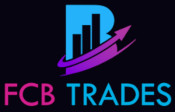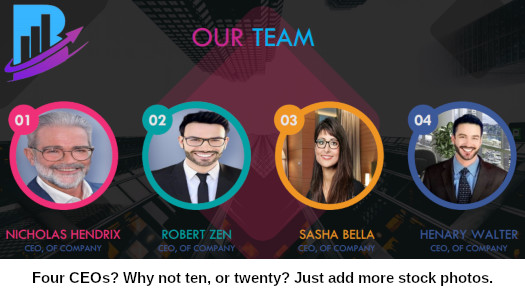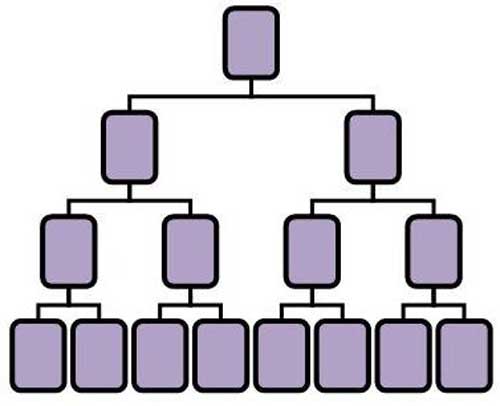FCB Trades Review: 1.5% daily ROI Ponzi scheme
 FCB Trades claims to operate in the forex trading MLM niche.
FCB Trades claims to operate in the forex trading MLM niche.
A residential address in the Netherlands is provided as a corporate address on FCB Trades’ website.
In the “whitepaper” section of their website, the company also provides an incorporation certificate for the UK and trademark registration for the Netherlands.
The UK incorporation is for Instituo Cervantes Limited and dates back 1997. On its website FCB Trades claims to be “a subsidiary of foundation cervantes benelux”.
UK Companies House records are notoriously rife with fraud, so this incorporation certificate is meaningless.
The Dutch registration is for for Instituo Cervantes and dates back to 2011. Given it’s for a trademark and not for FCB Trades, the document is less than meaningless.
Considering FCB Trades’ website domain (“fcbtrades.nl”) was only registered on December 19th, 2019, this incorporation certificate is also meaningless.
Supporting both certificates having nothing to do with FCB Trades is the blatant use of stock photos to represent FCB Trades’ four, yes four CEOs:

Quite obviously none of these people actually exist.
A marketing presentation video on FCB Trades’ official YouTube channel appears to feature an actor reading off a script.
From all of this, we can surmise that none of the corporate information provided by FCB Trades is legitimate.
This includes whether in fact FCB Trades is being run by someone from within the Netherlands.
As always, if an MLM company is not openly upfront about who is running or owns it, think long and hard about joining and/or handing over any money.
FCB Trades’ Products
FCB Trades has no retailable products or services, with affiliates only able to market FCB Trades affiliate membership itself.
FCB Trades’ Compensation Plan
FCB Trades affiliates invest $50 to $10,000 on the promise of an advertised daily 1.5% ROI.
Daily returns are paid for 220 days, capping out at 330%.
Referral Commissions
FCB Trades pays a 7% referral commission on funds invested by personally recruited affiliates.
Residual Commissions
FCB Trades pays residual commissions via a binary compensation structure.
A binary compensation structure places an affiliate at the top of a binary team, split into two sides (left and right):

The first level of the binary team houses two positions. The second level of the binary team is generated by splitting these first two positions into another two positions each (4 positions).
Subsequent levels of the binary team are generated as required, with each new level housing twice as many positions as the previous level.
Positions in the binary team are filled via direct and indirect recruitment of affiliates. Note there is no limit to how deep a binary team can grow.
At the end of each day FCB Trades tallies up new investment volume on both sides of the binary team.
Affiliates are paid 7% of funds invested on their smaller binary team side.
Once paid out on, funds are matched against the stronger side and flushed. Any leftover volume on the stronger side is carried over.
Matrix Commissions
FCB Trades’ compensation document mentions a 2×2 matrix. Entry into the matrix is supposedly funded via a 24% bonus return (???).
A slideshow from FCB Trades’ compensation suggests positions in the cycler cost $100 (or $100 credited (?)), with $300 paid out upon filling all six positions.

Whether this includes re-entry into a new matrix cycler is unclear.
Rank Bonuses
FCB Trades rewards affiliates for generating residual commissions with the following rank bonuses:
- Bronze (recruit two affiliates and generate $2000 in residual commissions) – $500 or an iPhone 7+
- Silver (recruit two Professional ranked affiliates and generate $4000 in residual commissions) – $1000 or an iPhone 9
- Gold (recruit three Professional ranked affiliates and generate $8000 in residual commissions) – $2000 or an iPhone X
- Diamond (recruit four Professional ranked affiliates, have another four Professionals in your downline and one Investor and generate $12,000 in residual commissions) – $3000 or a MacBook
- Blue Diamond (recruit six Professional ranked affiliates, have another six Professionals in your downline and two Investors and generate $16,000 in residual commissions) – $4000 or an Macbook Pro
- Black Diamond (recruit eight Professional ranked affiliates, have another eight Professionals in your downline and three Investors and generate $20,000 in residual commissions) – $8000 or a “tour of family to Hawaii”
- Crown Diamond (recruit ten Professional ranked affiliates, have another ten Professionals in your downline and five Investors and generate $50,000 in residual commissions) – $20,000 or “car of your dream”
- President (recruit twelve Professional ranked affiliates, have another twelve Professionals in your downline and seven Investors and generate $150,000 in residual commissions) – $60,000 and a 1% share in company-wide investment volume
Note that FCB Trades do not provide qualification criteria the Professional and Investor ranks.
Joining FCB Trades
FCB Trades affiliate membership appears to be free.
Full participation in the attached income opportunity however requires a minimum $50 investment. $100 matrix cycler positions seems to be optional.
Conclusion
FCB Trades claims it’s “the easiest way to earn cryptocurrency”, but then launches into a forex trading spiel:
FCB Trades is a reliable company with a flawless reputation that works in the sphere of forex trading and involved in the financial activity round the globe.
Our onlie [sic] platform allows investors to make deposits and receive dividends from trading currencies on the forex market and selling appreciated stocks.
According to Google, this same spiel features on around three thousand websites marketing equally suspicious investment opportunities.
Be it crypto or forex (who knows), FCB Trades pulls the usual “we have a trading bot!” ruse.
Unique blend of physical business, Bot-trading and forex trading with Experienced Team and huge backup.
Naturally FCB Trades fails to provide evidence of any trading activity taking place. Nor is there any evidence of any other source of external revenue being used to pay affiliates.
Furthermore FCB Trades also appears to be committing securities fraud.
Bogus incorporation or not, we’ll start with the UK and the Netherlands.
Being a passive investment opportunity, FCB Trades is offering a security. Securities in the UK are regulated by the FCA. In the Netherlands it’s the Dutch Authority for the Financial Markets (AFM).
A search on both regulators websites reveals FCB Trades is not registered to offer securities in either jurisdiction.
In fact FCB Trades fails to provide evidence it has register with any securities regulator, meaning the company is outright illegal in any securities regulated market.
As it stands the only verifiable source of revenue entering FCB Trades is new investment. Using new investment to pay existing affiliates daily returns makes FCB Trades a Ponzi scheme.
As with all MLM Ponzi schemes, once affiliate recruitment dies down so too will new investment.
This will starve FCB Trades of ROI revenue, eventually prompting a collapse.
The math behind Ponzi schemes guarantees that when they collapse, the majority of participants lose money.


F.Y.I.
The Dutch form on the whitepaper is not for incorporation.
Its proof of renewal of intellectual property for the word (brand name?) Instituto Cervantes.
Its issued by the Benelux Bureau for the Intellectual Property.
The address on the form is a hotel or apartment listed on hotels.com and booking.com.
That document in Dutch isn’t a certificate of incorporation (and is indeed completely irrelevant to the business described).
It is a certificate showing renewal of a trademark, issued by the Benelux Intellectual Property Office (www.boip.int), which is in charge of intellectual property registration for Belgium, the Netherlands and Luxembourg.
It shows that in 1992, a private individual by the name of Johannes Lambertus van der Heijden took out a Benelux trademark on the name “Instituto Cervantes”, for the purposes of offering various forms of education.
Such a registration is valid for 10 years and must then be renewed. This certificate shows it was renewed in 2012 (which today costs €263) for what must have been the second time, so the trademark now lasts until 2022.
The address given by this Johan van der Heijden is an apartment building in Torremolinos, a downmarket holiday destination on the Costa del Sol.
Given that location, the name of the business, and its chosen field of activity, it would be a reasonable guess that his business was selling Spanish language courses to Dutch visitors wanting to learn the local language, probably with the intent of settling permanently.
However, there is a major problem with that: just before that registration, in 1991, the Spanish government had set up a non-profit organisation called the Instituto Cervantes (www.cervantes.es). Its main activity is offering courses in Spanish language and culture, and it has branches all over the world.
That makes this Benelux-only trademark registration for the same name from a holiday apartment in Spain, just a year later, by somebody who going on his name is clearly Dutch, very strange indeed.
Looking into this little mystery leads one to a very, very strange, amateurish, wall-of-text website run by this Johan van der Heijden, http://www.cervantes.nu.
It features, among a lot of completely irrelevant pictures of buildings such as royal palaces, that same certificate of renewal of his trademark. It also refers to the UK registration of an Instituto Cervantes Ltd.
On a quick glance the website appears to mostly consist of pointless letters Van der Heijden has sent to or received from various public officials and bodies.
Such as his personal thank-you letter to the Registrar of Companies for England and Wales, acknowledging the receipt of the form letter he’d gotten from Companies House when he took out his UK registration.
From this first glance, Van der Heijden would appear to be a harmless old crank, trying very ineptly to create the impression that he is someone of importance. Certainly not the mastermind behind a Ponzi/MLM scam.
Ah OK, so it’s a worse than meaningless document.
Intellectual property for brand name = trademark?
edit: thanks for the clarification PassingBy. Will edit the review.
After having looked a bit closer into John (that’s what he goes by instead of Johan) van der Heijden, I have to correct what I stated earlier, about him being a “harmless old crank”.
He is, in fact, mentally ill (although equally harmless).
To be exact, he suffers from paranoid schizophrenia. That is not an amateur diagnosis, he reveals it in his voluminous writings, and what follows is only based on facts he gives himself.
Until about 1990 his life seems to have been quite normal, and centered around teaching Spanish. Ever since then, he has inhabited a fantasy world.
Without going into too much detail, just as an example: a prominent role in this was played by his imagined relationship with Princess Diana.
He wrote a huge number of letters to her, which he even gathered into a self-published book, “Letters to Diana, Princess of Wales”, large sections of which can be read at: books.google.com/books?id=V7O1A0Z_TgEC
It’s a pretty good example of what can happen when paranoid schizophrenia strikes someone intelligent and articulate.
For those not wishing to wade through stuff like that: he was convinced that this was not a onesided correspondence, he believed Diana was answering him through coded hints in the horoscope column of the Daily Mirror newspaper.
Shortly before her death, he proposed marriage to her, and she of course accepted. Sadly, her death happened a few weeks before the scheduled date of the wedding.
Anyway, during the 1990s Van der Heijden incorporated something called the Cervantes Foundation in the Netherlands, took out a Benelux trademark on the name Instituto Cervantes (unaware that the Spanish government had just set up a real organisation by that name), and also incorporated the UK company Instituto Cervantes Ltd., all as part of his delusional world.
They are, essentially, symptoms of his mental illness. For a moment I wondered whether he is still alive (he’s 73 now), since there doesn’t seem to have been any activity on his website since about 2012, but annual accounts for the UK company keep getting filed.
They are completely bogus (he just gives the same amount for everything: assets, liabilities, assets minus liabilities: it’s all the identical number), and there is no business activity, but he is filing them.
The people who set up this FCB trades thing clearly wanted to use those long-standing registrations to pretend their company isn’t brand-new (other scammers have used Companies House registrations of other people’s companies in this way).
Whether Van der Heijden was a chance online discovery, or whether there is some real-world connection between him and one of the participants, and that’s how they knew about these meaningless registrations of his, we cannot of course know.
It’s also immaterial: I think we can rule out completely that Van der Heijden is in any way involved.
These people, whether they know him or not, are trying to take advantage of a mentally ill man to further their scam.
Oh yes, one minor correction: it is not a “trademark registration for the Netherlands”, it’s one for the Benelux.
Belgium, the Netherlands and Luxembourg do not have separate national intellectual property registration.
This is one of the few remaining competences of the Benelux, most of the other ones having been passed over to the EU.
Well this is a new low. Ponzi scammers preying on the mentally ill to set up their schemes.
The information provided are just pile of junk as the person writing review even donot Know the plan exactly saying it to be for ,330 days while it’s for 230 days. ROI upto 1.5% not exactly 1.5%
This site is launched in Dec 1999. And company is not saying anything wrong that the site or this section of business is old. The launching is done in January and clearly mentioned on the home page too.
Address is mentioned of Norway, while see on the home page address of Netherlands.
(Ozedit; derails removed)
I usually ignore “up to” when it comes to Ponzi schemes. They pay out the advertised max until new investment runs dry, then it’s a race to the bottom.
FCB Trades the Ponzi scheme didn’t exist until January 2020. All the claims about existing prior to 2020 are bullshit.
I’ll give you that one, although not sure if it’s oversight on my part or the address was changed.
In any event, Alexa: 4 million+. This Ponzi is over, sorry for your loss.
Dear oz, now you ran away from all your claims. Our all parent sites are too much old and we did not hide that we have launched this system in December, 2019.
You are claiming from our side that this system exist prior to this. In our home page you even did not bother to read our company history.
Go and read it 1st and plz donot take benefit of our site for your cheap promotion and viewers attraction for clicks and clients views.
I feel so much pitty for this type of narrow mind cheap bullies and coward people who are when asked something are not able to answer and defend their baseless and self assumed opinion.
Geez, talk about desperate.
I didn’t “run away” from anything. FCB Trades is still a Ponzi scheme.
FCB Trades’ company history, “our team”, it’s all bullshit with stock photos. FCB Trades didn’t exist until late 2019.
Alexa ranking: 4 million
Sorry for your loss. Or if you’re FCB Trades’ admin, which I suspect, not sorry your scam didn’t work out.
Sasha Bella is a name listed on the team section of the website. All these faces look pretty weird because they have been copied and pasted together.
fcbtrades.nl/our-team/
Casio de Caprio is my favourite. Try a little harder next time, scammers.
Sasha Bella:
That address in the Netherlands (Ansinghlaan 66, 3431 GW Utrecht – to give the address in the correct form anyone in the Netherlands would use, not your messed-up version) definitely wasn’t on your website when this review appeared, and I looked into the bogus corporate history you presented.
I am absolutely certain of that, because I would definitely have done what I did just now: look at that address using Google Street View.
It’s an extremely modest house on a residential street, with no sign of any business being located there, let alone of being the base of “the world leader among the various business cultures in different parts of the global community”.
Anyone who wants to see the floorplan of your corporate headquarters, and some pictures of the inside, can find them at:
oozo.nl/woningen/nieuwegein/jutphaas-wijkersloot/jutphaas-wijkersloot/woning/852766/woning-ansinghlaan-66-nieuwegein
(Note that the ground floor is a separate tiny apartment, 66A.)
What little in the way of “company history” you have on your website has remained unchanged from what I addressed in my comments #2 and #4.
In particular, your claim that a Benelux trademark registration for the name “Instituto Cervantes”, and a UK incorporation of an Instituto Cervantes Ltd., are the origins of your company.
Both of these belong to an elderly, mentally ill man called John Van der Heijden. What is the relationship between Mr. Van der Heijden and your company? He is not included on the “Our Team” page.
Ah, so I didn’t miss it then.
Crafty scammers, can’t give them an inch.
These scammers are based in Pakistan. Maybe that explains why the NL side of things doesn’t make much sense.